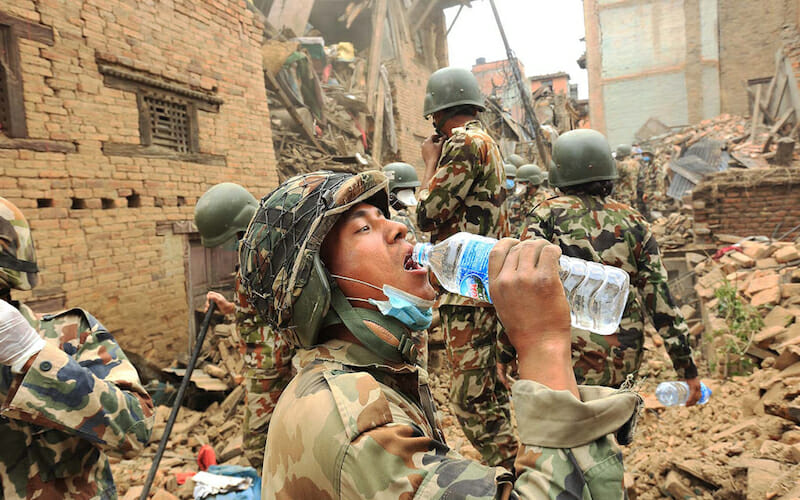
Nepal: Three Years Since the Earthquakes and Still No Discernible Improvements
Three years have passed since the violent recurring earthquakes that devastated the small landlocked country of Nepal, taking the lives of thousands and destroying the lives of millions. They started on April 25, 2015 when a massive 7.6 magnitude earthquake struck Nepal which was then followed by a barrage of recurring earthquakes over the next few months. Despite the intentions of rebuilding Nepal to be more resilient with several nations helping the country get back on its feet, over 39 months have passed with little progress having been made. The newly formed government must make the priority the victims and their human rights as over three years have passed and they are yet to receive adequate support. A major cause for this is largely due to the political wrangling over disbursement.
In 2015 when the earthquakes began, several nations sent response teams and emergency relief swiftly. The kindness shown by the other nations was immense as billions were raised in assistance in a matter of a few days. With the immense support shown from the international community the victims of the earthquakes believed there was hope to build their broken lives; however, the political situation in the country failed its citizens, yet again. The National Reconstruction Authority was formed in August 2015 with a mandate to coordinate the reconstruction work following the earthquakes.
However, from the billions of dollars pledged by the donors for the post-quake rebuilding, there have been differing reports with some stating that only 16 percent of the total has been distributed so far, while the NRA states that nearly half of it has been distributed. To add to this, the Post Disaster Needs Assessment Report had identified 379 government buildings affected by the earthquakes while only six have been restored to date with 120 more under way.
The NRA developed a building code over the course of 18 months, by the time several families had spent the first installment of the grant on other necessities as they struggled to meet their basic needs. With basic necessities such as food not being met, investing in earthquake-resistant housing measures did not seem within reach. Due to this people have been forced to accept the risk of living in houses that may fall down should another earthquake strike. The potential to change will be wasted if we fail to understand and address such chronic vulnerabilities of the people recovering from the disaster.
A week ago, the Nepalese Finance Secretary was handed a cheque of 2.1 billion Nepalese rupees by the Indian Government towards housing support in the districts of Nuwakot and Gorkha. Since March 2018 India has partnered with the United Nations Development Programme and the United Nations Office for Project Services towards providing socio-technical facilitation to the housing beneficiaries of these two districts.
Children have been left without education, families have been left without adequate shelter, the already poor nation has failed its citizens by not being able to provide them the support and resources that they could have. Now, finally after years of political uncertainty in the country, a government with a sizeable mandate has been elected. The government has made several commitments towards the betterment of the nation. One thing that they should ensure is the proper allocation and utilization of the funds to fulfil the rights and remedy the violations of those who are still suffering from the effects of the devastating earthquakes.

